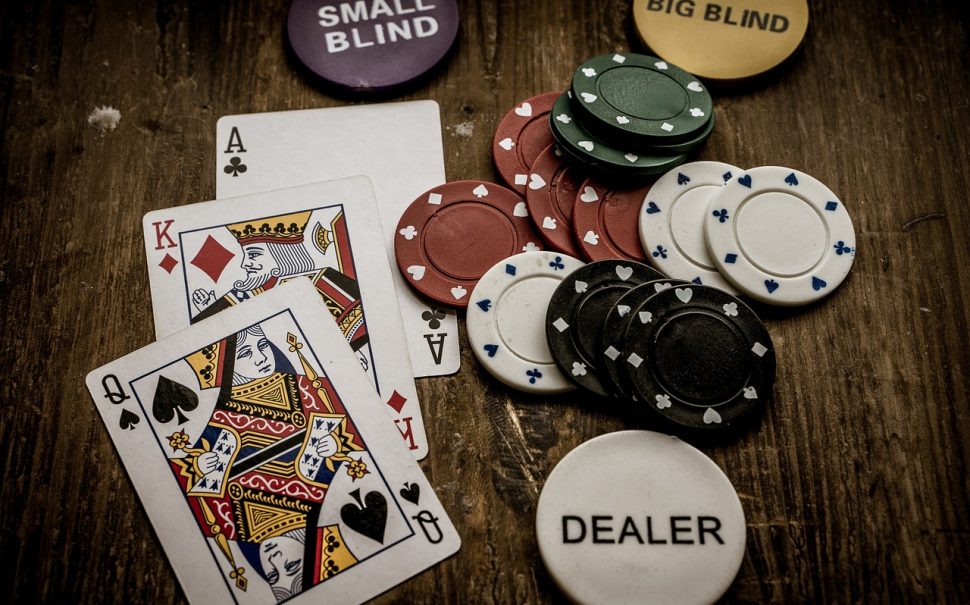Since its inception poker has been shrouded in an air of mystique, its allure stemming from the tantalising blend of chance and strategy that defines the game.
Dating back centuries, poker has evolved from its humble origins into a global phenomenon, captivating players of all backgrounds and skill levels.
Yet, at the heart of this enduring allure lies a fundamental question that has sparked endless debate among enthusiasts and scholars alike: is poker primarily a game of luck or skill?
This question forms the nucleus around which the perpetual discourse on poker revolves.
On one hand, proponents argue that the outcome of each hand hinges predominantly on the random distribution of cards, making luck the main force in determining success or failure.
On the other hand, advocates for skill assert that mastery of strategy, psychology and mathematical principles affords skilled players a distinct advantage, enabling them to consistently outperform their less adept counterparts over the long run.
The case for luck
At the heart of the argument for luck lies the inherent unpredictability of the cards themselves.
In poker players are dealt hands from a shuffled deck with no control over the order or composition of the cards they receive.
This randomness ensures that each hand is a unique event, unaffected by previous outcomes or player actions, thereby placing a significant emphasis on chance as the primary determinant of success.
Moreover, the very essence of poker lies in its embrace of chance and unpredictability.
Unlike games of pure skill such as chess, where every move is meticulously planned and executed, poker thrives on the element of surprise.
The ability to adapt to changing circumstances and capitalise on fortuitous opportunities is a hallmark of skilled poker play, but it is ultimately the capricious nature of the cards that injects excitement and drama into the game.
The concept of variance looms large in the realm of poker.
Variance refers to the natural fluctuations in luck that can cause short-term outcomes to deviate from expected probabilities.
Even the most skilled players can experience bouts of bad luck or encounter opponents who happen to hit improbable hands, leading to temporary setbacks or losses.
In this sense variance serves as a reminder of the omnipresent role of luck in shaping the ebb and flow of poker games, particularly in the short term.
For a firsthand experience of the thrill of poker, explore the Kraken Bay Demo.
The argument for skill
Contrary to popular misconceptions, poker is far more than a game of chance – it’s a battleground of strategic wits.
At its core, skilled poker play revolves around the intricate dance of strategy and decision-making.
Every move at the poker table is a calculated risk, informed by a profound understanding of probability, game theory and opponent psychology.
Whether it’s deciding when to fold a marginal hand or bluffing with precision timing, skilled players navigate the complexities of each hand with strategic acumen.
While the cards themselves hold significance, skilled players recognise that the real game unfolds in the minds of their opponents.
Reading opponents and deciphering their intentions is akin to unraveling a mystery, with each bet and gesture offering valuable clues.
Skilled players master the art of psychological warfare, using subtle cues and calculated manoeuvres to manipulate opponents’ emotions and gain a strategic edge.
In poker it’s not just about the strength of your hand, it’s about outsmarting and outmanoeuvring your adversaries.
Perhaps the most compelling evidence of skill in poker lies in the realm of long-term results.
While luck may influence individual hands or sessions, skilled players demonstrate a remarkable ability to maintain consistency and achieve sustained success over time.
Through relentless dedication to their craft, skilled players hone their instincts, refine their strategies and adapt to ever-changing dynamics at the table.
In the end, it’s not luck that separates the winners from the losers – it’s skill, perseverance and a relentless pursuit of excellence.
The nuances of gameplay
In the world of poker the dynamic interplay between luck and skill orchestrates a symphony of chance and strategy.
While luck dictates the cards dealt and the initial outcomes of hands, skilful players wield their expertise to navigate the unpredictable currents of the game.
It’s not merely a matter of being dealt a winning hand it’s about knowing how to play it to maximum advantage, capitalising on opportunities and minimising risks along the way.
Successful poker players are akin to master sailors, adept at steering their course through stormy seas and tranquil waters alike.
They possess the uncanny ability to adapt swiftly to changing circumstances, whether facing down aggressive opponents, navigating precarious odds or capitalising on unexpected turns of fate.
Flexibility and resilience are their compass, guiding them through the tumult of the game and ensuring they remain poised for victory.
While luck may sway the tide in the short term, pro players understand that true mastery of poker lies in the art of mitigating its capricious influence.
Through cunning strategy, shrewd decision-making and a deep understanding of the game’s intricacies, they deftly manipulate the odds in their favour.
From strategic betting to calculated bluffs, they employ every tool at their disposal to tip the scales of fortune in their favor and emerge triumphant in the eternal struggle between luck and skill.
Real-life examples and case studies
Embodied within the halls of poker history are the legendary players whose names evoke awe and admiration among enthusiasts.
From the tactical prowess of Stu Ungar to the unyielding determination of Johnny Chan, these luminaries have left an indelible mark on the game, showcasing the power of skill and strategy in overcoming adversity.
Their strategic brilliance serves as a beacon of inspiration for aspiring players, illustrating the heights that can be achieved through dedication and mastery.
Despite the dominance of skill in the poker arena, there exist tales of fortune’s capricious nature, where luck reigns supreme over logic and strategy.
From improbable river cards to miraculous last-minute saves, these anecdotes serve as cautionary reminders of the game’s inherent unpredictability.
Even the most skilled players are not immune to the whims of fate, and these instances of luck usurping skill underscore the delicate balance between chance and strategy in the game of poker.
While luck may dictate the outcome of individual hands, it is the strategic decision-making of players that ultimately determines their long-term success at the poker table.
Studies have shown that players who consistently make sound decisions based on analysis and intuition are more likely to maintain higher win rates over time.
Whether it’s knowing when to fold a weak hand or bluffing with precision, skillful players leverage their strategic acumen to outmaneuver opponents and emerge victorious in the perpetual debate of luck versus skill.
For more thrilling poker experiences, explore the Slotozilla platform.
Ending notes
In the realm of poker the eternal debate over the relative importance of luck versus skill underscores the complex nature of the game.
While luck undoubtedly plays a significant role in determining short-term outcomes, skilful players possess the ability to leverage their expertise and strategic acumen to influence the course of play over the long term.
Despite centuries of deliberation and analysis, the debate surrounding the true nature of poker is unlikely to yield a definitive resolution.
The perpetual interplay between luck and skill ensures that the game remains a subject of fascination and speculation among players and enthusiasts alike.
While some may argue vehemently for the dominance of one over the other, the reality is that poker’s enduring allure lies in its ability to defy easy categorisation and elude conclusive interpretation.
What makes poker endlessly captivating is not its adherence to a rigid dichotomy of luck versus skill, but rather the captivating blend of uncertainty and strategy that defines the game.
From the strategic calculations made by players to the psychological dynamics that unfold at the table, poker offers an inexhaustible wellspring of intrigue and excitement that transcends simple categorisation.
It is this inherent complexity and depth that ensures poker’s enduring appeal, charming players and observers alike with its timeless fascination.




